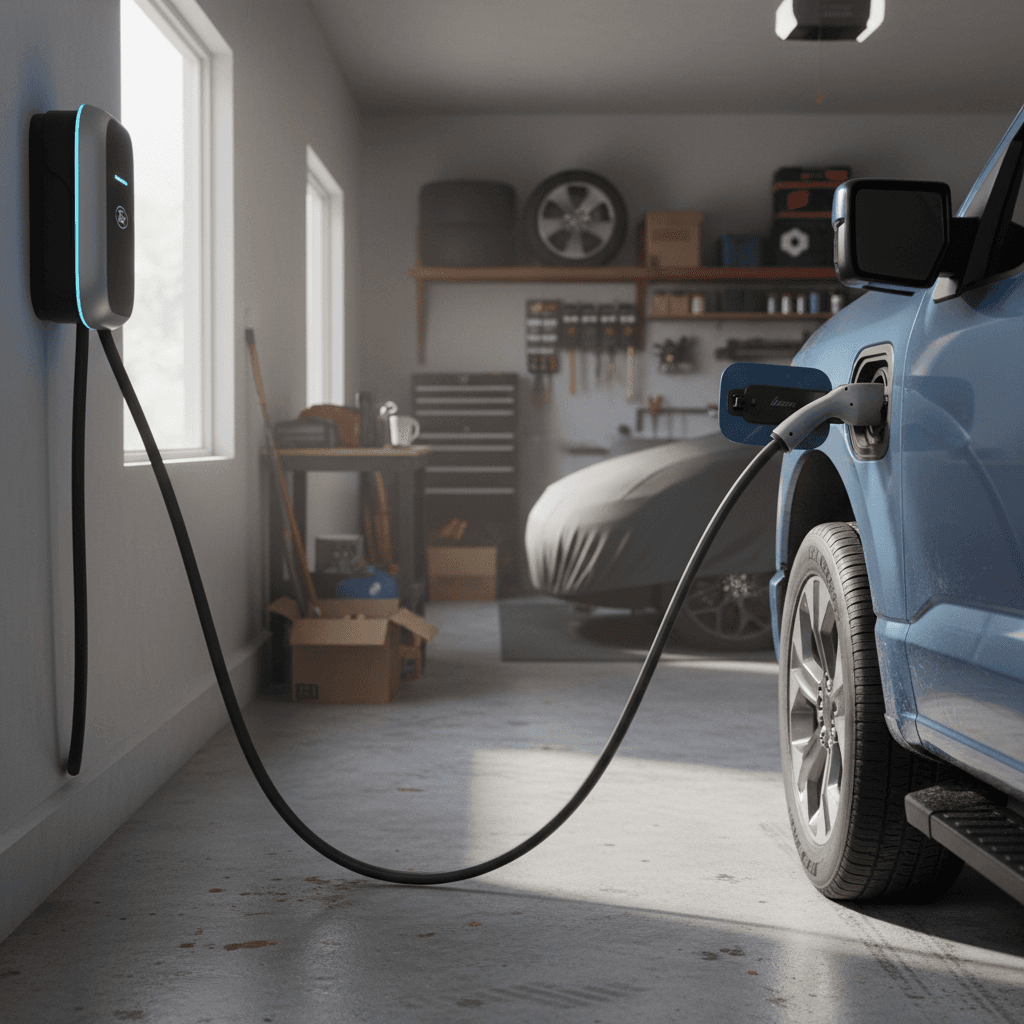If you own, or are considering, a Ford electric vehicle, you’ve probably asked yourself one big question: what is the Ford EV battery replacement cost going to look like if something goes wrong? Because the high-voltage pack is the most expensive part of the car, it’s a fair concern, especially if you’re planning to keep the vehicle for many years or buying used.
Quick answer
Why Ford EV battery replacement cost matters
High-voltage batteries changed the ownership math for cars. With a gasoline vehicle, you might face big-ticket repairs like engines or transmissions later in life. With EVs, that focus shifts to the pack under the floor. It’s a long-lived component, but it’s also heavily engineered, expensive, and crucial to range and performance.
- Battery costs affect long-term total cost of ownership, especially if you drive high mileage.
- Perceived replacement cost has a big impact on resale value and lease pricing.
- Insurance companies consider pack cost when deciding to repair or total a vehicle after a crash.
- For used EV shoppers, battery health is often the single biggest unknown.
Good news for EV drivers
How much does a Ford EV battery replacement cost in 2025?
You won’t find a neat price list on Ford’s consumer website, because replacement costs depend on pack size, part availability, and whether the dealer uses a full pack or a remanufactured assembly. But based on dealer estimates, repair invoices that have surfaced publicly, and what we know about pack sizes and parts pricing, here’s a realistic view of Ford EV battery replacement cost in 2025.
Typical Ford EV battery replacement ranges (out of warranty)
Why quotes vary so much
Model-by-model: Mustang Mach-E, F-150 Lightning & hybrids
Ford battery replacement cost by model (big-picture view)
Remember: these figures are directional, not official Ford price sheets.
Mustang Mach-E
Depending on whether you have the standard-range (about mid-60 kWh) or extended-range pack (around the high-80s to 90 kWh), expect:
- Parts: roughly low-to-mid teens in thousands of dollars.
- Labor: often $1,500–$3,000 depending on dealer rate.
- Total: many owners report invoices in the $14,000–$22,000 band when out of warranty.
F-150 Lightning
The Lightning uses a much larger pack than Mach-E, particularly in extended-range form:
- Parts: can climb to the high teens or more in thousands of dollars.
- Labor: truck packaging and weight add time and cost.
- Total: it’s not unusual to see estimates that approach or exceed $25,000 in an out-of-warranty scenario.
Ford hybrids & plug-in hybrids
Hybrid batteries are smaller, less expensive, and more mature as a technology:
- Typical dealer quotes fall around $4,000–$9,000 installed.
- Aftermarket and remanufactured options may lower that further.
- Because costs are lower, hybrids are rarely totaled over battery issues alone.
What about salvaged packs?
Labor, taxes, and other “hidden” costs
The sticker shock on a parts quote is only part of the story. Swapping a high-voltage battery pack in a Mach-E or F-150 Lightning is a specialized job, often requiring multiple techs, lifting equipment, and post-repair diagnostics.
Where your Ford EV battery replacement money actually goes
Typical cost components you’ll see on an out-of-warranty invoice.
| Line item | What it covers | How it affects cost |
|---|---|---|
| High-voltage battery assembly | The pack itself: cells, casing, cooling hardware, contactors. | This is the bulk of the cost, often 80–90% of the total. |
| Dealer labor | Removing body bracing, lowering the pack, installing the new unit, and test-driving. | Labor rates and hours vary, but it’s common to see 10–20 hours billed. |
| Ancillary parts | Coolant, fasteners, seals, brackets, and one-time-use hardware. | Usually hundreds, not thousands, of dollars, but they do add up. |
| Diagnostic time | Confirming the pack is the culprit, scanning for codes, road testing. | Some shops roll this into labor; others list separate charges. |
| Taxes & fees | State and local sales tax, shop fees, environmental charges. | Depending on your area, this can add thousands to a large job. |
Actual line items and pricing will vary by dealer, state, and specific repair.
High-voltage safety is non‑negotiable
Ford EV battery warranty: what’s actually covered
Before you assume you’ll foot a five‑figure bill, step back and look at Ford’s EV battery warranty. For modern Ford EVs like the Mustang Mach-E and F-150 Lightning, the high-voltage battery is typically covered for 8 years or 100,000 miles against defects in materials or workmanship. Many states also apply this standard under federal emissions regulations.
- If the pack fails, won’t hold charge, throws internal fault codes, within that period, Ford normally replaces or repairs it at no cost to you.
- Coverage follows the vehicle, not the first owner, which is a big plus if you’re buying a used Ford EV.
- In many cases, Ford uses new or remanufactured packs that meet or exceed original specs.
Warranty vs. normal wear
What’s typically covered
- Defects in battery materials or assembly.
- Unexpected internal failures that prevent normal operation.
- Pack replacements resulting from covered failures.
- Associated labor performed by a Ford dealer.
What usually isn’t
- Normal degradation from age, mileage, and fast-charging.
- Damage from accidents, flooding, or improper modifications.
- Use of non-approved chargers or tampering with high-voltage systems.
- Commercial or fleet use may have different terms, always check your booklet.
Always read the warranty booklet
Repair vs. replace: what happens when a Ford EV battery fails
From the outside, it sounds binary: the battery is either fine or it needs to be replaced. In reality, Ford dealers and EV specialists have a few different paths before they jump to a full pack swap.
Common outcomes when a Ford EV battery has issues
Not every battery problem leads to a brand-new pack.
Module-level repair
Ford packs are composed of multiple modules. If diagnostics show that only one or two modules are bad, the dealer may be able to replace those, then rebalance the pack.
This is far less expensive than a full pack swap, but not possible in every failure scenario.
Remanufactured pack
Ford and third parties offer remanufactured batteries built from good modules out of other packs.
These typically cost less than a brand-new assembly but may have different warranty terms.
Complete pack replacement
In cases of severe internal failure, crash damage, or advanced degradation, a full replacement pack is installed.
This is the scenario that usually leads to five‑figure estimates outside of warranty.
For most drivers, a Ford EV battery is a long-term component, not a scheduled replacement item like brakes or tires. Failures are the exception, not the rule.
Smart ways to lower your out-of-pocket battery cost
If you do end up facing a battery repair or replacement outside of warranty, you’re not powerless. There are several levers you can pull to reduce your real-world cost.
Strategies to reduce Ford EV battery replacement cost
1. Verify warranty eligibility
Double-check the in-service date and mileage against Ford’s battery warranty. Also look for state-specific emissions coverage that might extend protection in CARB states.
2. Talk to your insurance company
If damage resulted from a collision, animal strike, or flooding, the claim may fall under comprehensive or collision coverage. In some cases, insurers will replace the pack instead of totaling the vehicle.
3. Ask about remanufactured packs
A remanufactured or refurbished pack supplied through Ford or a reputable specialist can meaningfully lower parts cost while still providing a warranty.
4. Get a second opinion
Not all dealers price the same, and some independent EV specialists have more experience with repair vs. replace decisions. A second estimate can reveal better options.
5. Consider partial repairs
If your issue is localized to a few modules or a wiring harness, a targeted repair may restore function without the cost of a full pack.
6. Look at your long-term plans
On an older, high-mileage vehicle, putting $20,000 into a battery may not make sense. In that case, selling as-is and moving into a newer EV with known battery health can be the smarter economic play.
Where Recharged can help
Buying a used Ford EV: battery health and resale value
For many shoppers, the real question isn’t, “What will a new battery cost?” It’s, “How do I avoid buying a Ford EV that will need one soon?” That’s where battery health diagnostics and history matter more than list price alone.

What to look for in a used Ford EV
- Real-world range: Take a long test drive and watch how quickly the remaining range drops.
- Charging history: Vehicles that lived on DC fast charging alone may show more degradation.
- Service records: Look for any high-voltage battery or charging system repairs.
- Software updates: Confirm the vehicle has current firmware, which can affect range and charging behavior.
How Recharged de-risks used EVs
Every EV sold through Recharged comes with a Recharged Score Report that includes verified battery health and usage patterns. That means you’re not guessing whether the Mach‑E or Lightning you’re considering has a strong pack, you can see it in black and white.
You can also get expert guidance on buying a used EV, financing, and trade‑in options, all handled digitally or at our Richmond, VA Experience Center.

FAQ: Ford EV battery replacement cost
Frequently asked questions about Ford EV battery costs
Bottom line: how worried should you be?
It’s healthy to respect the potential expense of a high-voltage battery, especially when you see numbers that start with a “2” and end with “,000.” But for most Ford EV owners, a full battery replacement is an unlikely, worst‑case scenario, not a routine maintenance item. Strong warranties, the possibility of repairs short of a full pack, and insurance coverage after accidents dramatically reduce the chances you’ll write that check yourself.
If you’re shopping used, the smarter play is to focus less on worst‑case Ford EV battery replacement cost and more on the real condition of the pack in front of you. That’s exactly why Recharged builds every transaction around verified battery health, fair-market pricing, and transparent guidance, so you can enjoy the benefits of a Mach‑E, Lightning, or other EV without losing sleep over the pack under your feet.

